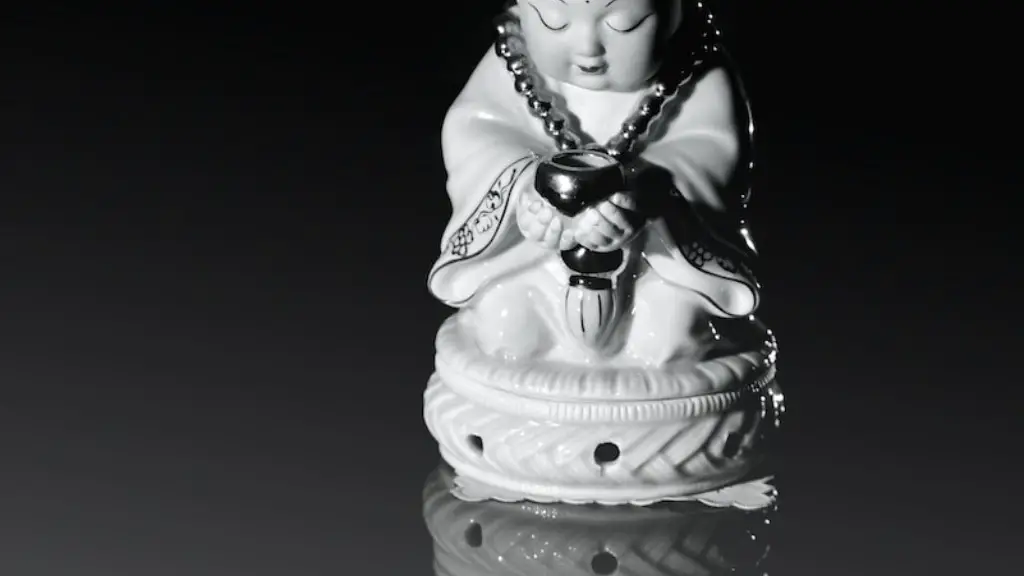Introduction
Hinduism is one of the world’s oldest and most complex religions. It has been practiced for thousands of years and is still widely practiced today. At its core, Hinduism is about seeking truth and meaning in life. But what exactly is the book for Hinduism? Is it a text, or a set of scriptures, that explains the beliefs and values of Hinduism? And what does it mean to someone who practices this faith? In this article, we’ll look at the book for Hinduism in more detail, including its history, contents, and meaning.
History
The book for Hinduism is known as the Vedas. The word “veda” comes from the Sanskrit root “ved,” meaning “knowledge.” The Vedas are the oldest scriptures in Hinduism and the oldest written literature in India, dating back to 1500 BCE or earlier. They contain liturgical formulas, hymns, prayers, and philosophical reflections on various topics relating to the relationship between God and human.
The Vedas were originally composed orally and transmitted through an oral tradition. Scholars of Hinduism are still in the process of reconstructing the original text of the Vedas. This means that today, there are several versions of the Vedas available.
Contents
The Vedas are composed of four main collections: the Rigveda, the Sama Veda, the Yajur Veda, and the Atharva Veda. The Rigveda is the oldest of these collections and includes hymns, poems, and rituals related to the worship of the gods. The Sama Veda is a collection of hymns from the Rigveda, arranged according to melody. The Yajur Veda is mainly composed of sacrificial formulas used in rituals. The Atharva Veda is a collection of magical spells and charms.
Each of the Vedas also contains a collection of Upanishads, which are short philosophical texts presenting various theories of knowledge and reality, as well as reflections on the nature of the soul, the divine, and the ultimate truth.
Meaning
For Hindus, the Vedas are the ultimate source of spiritual knowledge and insight. The Vedas teach us about the nature of reality, the relationship between the human soul and God, and the purpose of life. The Vedas also provide guidance on how to live in accordance with Dharma, the divine law. By understanding the Vedas and acting in accordance with their teachings, Hindus strive to achieve Moksha, the liberation of the self from the cycle of death and rebirth.
The Vedas are also a source of many Hindu traditions, such as the meditation, yoga, the caste system, mantras and sacred texts. They are also a source of many rituals, such as the daily puja and special ceremonies for weddings, births, deaths, and other important rites of passage.
Scripture And Philosophy
The Vedas are not simply a collection of scriptures. They also include a rich tradition of philosophical reflections. The Upanishads, for example, present some of the most profound reflections on the concept of Brahman, the ultimate reality which transcends the physical world. The Vedas also contain many stories from Hindu mythology, which teach philosophical lessons about the nature of life, death, and the soul’s journey in the afterlife.
Interpretation And Application
Hindus also interpret and apply the teachings of the Vedas in different ways. They may interpret the Vedas literally, as a set of spiritual laws that must be obeyed, or interpret them in more symbolic or philosophical terms. Each Hindu may also interpret the Vedas in their own unique way and apply them to their own life and context. In this way, each person may develop their own personal spiritual path, which is based on the guidance of the Vedas.
Significance In Modern Times
Today, the Vedas remain an important part of Hinduism and are still used by Hindus for spiritual guidance and inspiration. The Vedas are a source of ancient wisdom and a testament to the long history and complex nature of Hinduism. They are also a reminder of the importance of reflecting on spiritual truths and seeking to live in accordance with Dharma.
Conclusion
In conclusion, the book for Hinduism is known as the Vedas, a collection of ancient scriptures that are still an important part of Hinduism today. The Vedas offer guidance on spiritual truths and Hindu beliefs, as well as insights into the philosophy, mythology, and rituals of Hinduism. They provide a valuable source of wisdom and guidance for modern Hindus and are still used today as a source of spiritual knowledge and inspiration.

